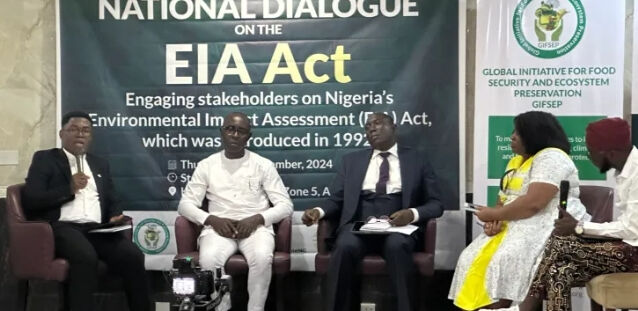Experts Seek Amendment to Nigeria’s Environmental Impact Assessment Laws
The experts, who spoke during a high level stakeholders National Dialogue on the EIA Act in Abuja penultimate Thursday, argued that the current laws do not effectively address modern environmental challenges such as climate change and solid minerals mining issues among others.
The event was organised by the Global Initiative For Food Security and Ecosystem Preservation (GIFSEP) in partnership with the Center for Journalism Innovation and Development (CJID) among other partners.
Participants included relevant government ministries and agencies as well as community representatives and industry practitioners who largely focused on the strengths and weaknesses of the current EIA laws in Nigeria and their modes of implementation.
They argued that the law is no longer fit for purpose because it does not capture a lot of emerging issues, like climate change and solid minerals mining issues and their significant impact on host communities and biodiversity.
The act which dates back to 1992 did not envisaged, according to majority of the participants, issues of climate change and the inherent damaging effects of mining activities among other environmental issues currently facing Nigeria, the organizers highlighted.
They also pointed at compliance monitoring of the EIA Act in Nigeria, which they said was very weak to protect the environment, biodiversity and the host communities of mining sites and other environmentally impacted projects to protect future generations.
Environmental Impact Assessment (EIA) is a process of evaluating the likely environmental impacts of a proposed project or development, taking into account inter-related socio-economic, cultural and human-health impacts, both beneficial and adverse.

